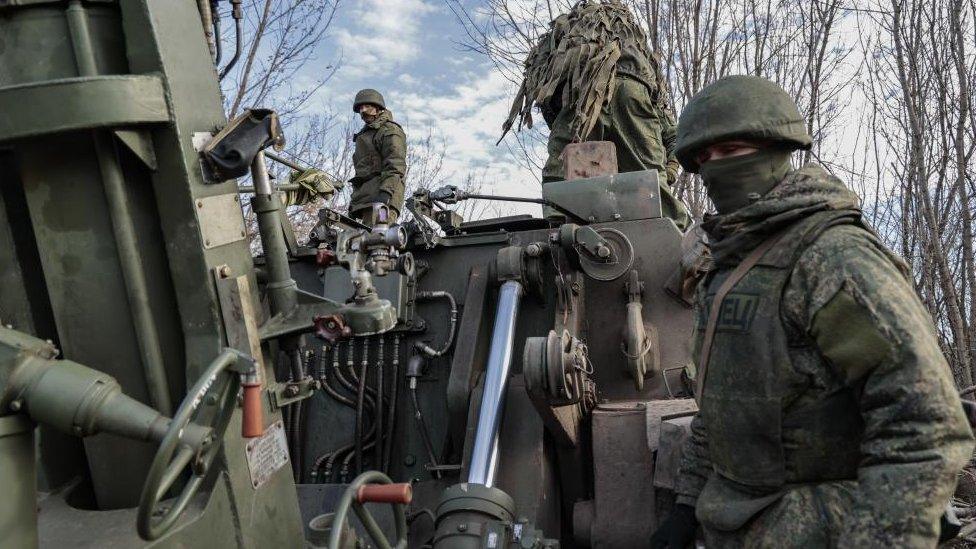Ukraine was sea-change for openness – GCHQ head
- Published
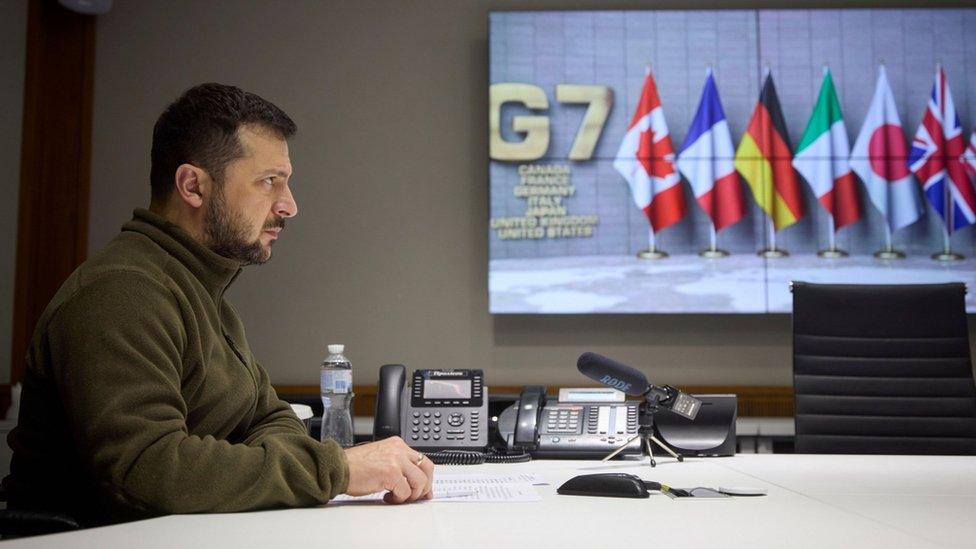
Intelligence has been at the forefront of the Ukraine war, says Sir Jeremy
The Ukraine conflict marked a sea-change for the release of intelligence, the head of the spy agency GCHQ Sir Jeremy Fleming has said.
Washington and London took the unusual step of publicising their knowledge of Russia's plans ahead of its invasion.
The head of US intelligence, Avril Haines, said lessons had been learned including the limits of such moves to publicise intelligence.
Sir Jeremy interviewed her for Radio 4's Today programme.
The extraordinary exchange between the intelligence bosses - which they acknowledged would normally happen at a "top secret" level - saw them discuss how important it was for people to understand their jobs against the backdrop of the war in Ukraine.
As a 30-year veteran of the secret world, Sir Jeremy said Ukraine had seen a new type of conflict in which intelligence was at the forefront.
Ms Haines agreed, saying the war between Ukraine and Russia had made it clear that countries "cannot manage any threat [from] around the world without partners or allies".
Western allies, including the UK and US, have provided Ukraine with military aid since it was invaded in February.
As director of national intelligence, Ms Haines co-ordinates all America's spy agencies - and she played a pivotal role in pushing for sensitive intelligence to be declassified and published in the run-up to Russia's February invasion.
This unusual step was designed to deter Russia and counter its claims it was acting defensively.
"Keeping the population up-to-date on what we're seeing and involving them in the conversation in a more significant way is crucial," Ms Haines told Sir Jeremy, who was guest-editing the Today programme.
However, she added there were limitations. In Russia, efforts to share intelligence had "basically no impact" because of the control the Kremlin exerted over information flows inside the country.
This extended to other countries who began believing the false claims Russia was peddling about the West's involvement in the war, Ms Haines said.
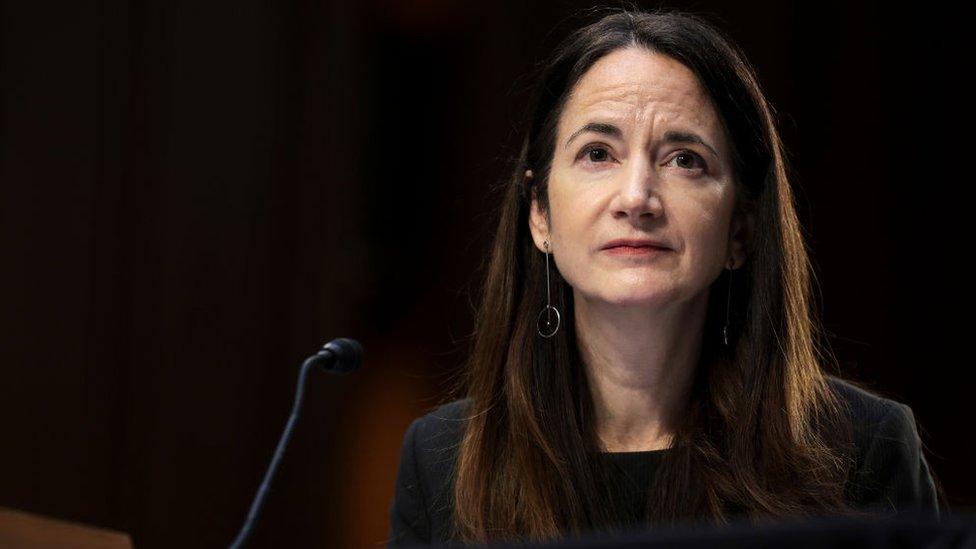
US intelligence chief Avril Haines says open intelligence is important in this age of easily-spread misinformation
"One of their main narratives is that the United States is provoking this conflict, and that Nato and Ukraine are setting the conditions and threatening Russia and that sort of forced them into this position," she told Sir Jeremy.
"Authoritarian states have this kind of asymmetric advantage where they're effectively controlling the information to their populations."
Sir Jeremy said he supported the sea-change of declassifying certain intelligence, and using it to "pre-bunk" a narrative, but much of the world had not completely bought into the argument.
The GCHQ head, who was appointed by then foreign secretary Boris Johnson in 2017, said conversations about open intelligence were important - and they have to include non-government and intelligence voices.
For this reason, he added, the private sector had played an important part in the conflict - whether it was satellite imagery from private providers, which could confirm the intelligence claims about troop build-ups, or the work of companies like Microsoft in providing cyber-defence for Ukraine.
"There are different alliances, which enable us to show and demonstrate that we are more trusted," Sir Jeremy said, before wishing Ms Haines a "happy and, I hope, peaceful 2023".
In another interview for the programme, Sir Jeremy rejected the idea that GCHQ had been dragged into the open by Edward Snowden's revelations, claiming the former US intelligence employee publishing details of secret programmes had cost the UK "blood and money".
Asked if his successor could be the first woman to lead GCHQ, Sir Jeremy said "let's hope so" noting the organisation had not been led by either a woman or someone from an ethnic minority background and that it was time to "show a difference at the top" of intelligence agencies.
Listen to the full interview on Best of Today on BBC Sounds.
Related topics
- Published11 October 2022
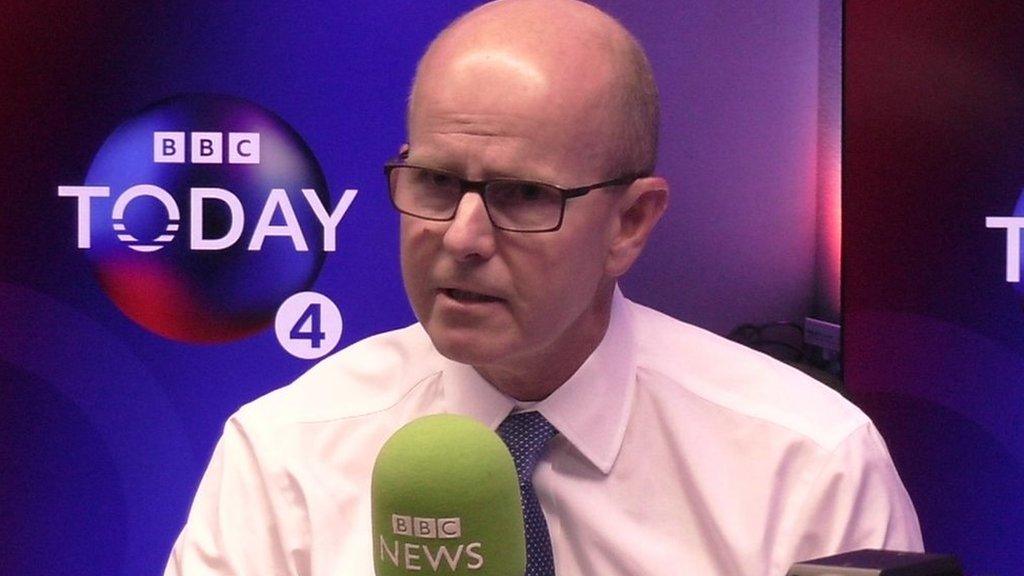
- Published11 May 2022
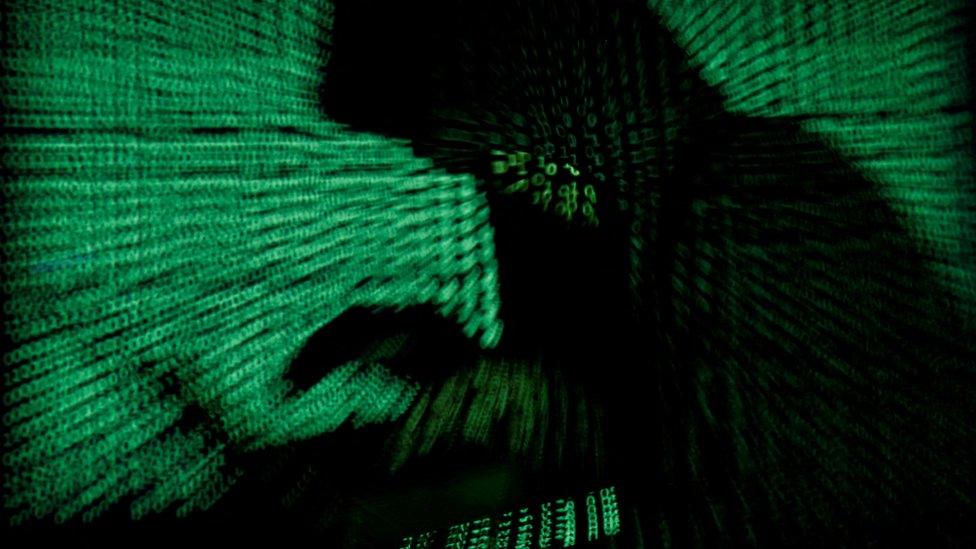
- Published4 December 2022
